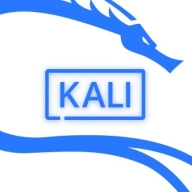

Windows Server and Kali Linux are two different operating systems, each with unique strengths. Windows Server is highly praised for its comprehensive support and user-friendly deployment, while Kali Linux stands out due to its specialized features for network testing and security.
Features: Windows Server offers robust integration capabilities, advanced management tools for enterprise environments, and strong customer support. Kali Linux provides an extensive suite of security tools, high customization potential for penetration testing, and flexibility in deployment.
Room for Improvement: Windows Server needs enhancements in system resource usage, better security features, and more competitive pricing. Kali Linux requires better documentation, more user-friendly interfaces for new users, and enhanced support options beyond community-based assistance.
Ease of Deployment and Customer Service: Windows Server has a straightforward, intuitive deployment process and strong customer support. Kali Linux is praised for its flexible deployment but relies heavily on community-based support, leading to mixed reviews in this area.
Pricing and ROI: Windows Server is considered expensive, justified by its enterprise-level functionalities and strong ROI. Kali Linux is open-source and freely available, offering excellent value for organizations focused on cybersecurity despite a steeper learning curve.
Integrating Kali Linux with DevOps tools has resulted in reduced operational costs due to automated test cases, making it a worthwhile investment with significant returns by decreasing the attack surface area and the frequency of attack incidents.
If we had installed it on-premises or through other means, it would have incurred significant money and effort to create the VMs, deploy it on machines, and then delete and format it after use.
I have saved time by avoiding the lag I sometimes face on the TryHackMe in-built machine, and I have learned more efficiently.
We're very competitive commercially and technically because of it.
We've seen value in Windows Server because the systems work smoothly without any problems.
Windows Server offers excellent value for money, particularly when compared to alternatives.
Since most of the tools and other things are community-based, the documentation and other community support are very good.
I was able to solve the problems I was experiencing.
Our in-house team can also solve most issues.
If you go through a partner who sells or supports Windows, the support could be around seven out of ten, because Windows relies on these partners for assistance.
Microsoft's technical support for Windows Server has been lacking, with rare responses even with premium support.
Regarding the scalability of Kali Linux for my work and projects, whenever I was conducting brute force attacks and provided more than two or three million lines of payload, the system would freeze.
I find Kali Linux very scalable.
If I need more workload, I would probably need more CPU, and Kali Linux will handle that properly.
I've worked in companies with 20,000 to 100,000 users, and it scales beautifully without issues.
It's definitely scalable.
The solution is used extensively in our organization, and we have plans to increase the usage.
Kali Linux is stable for my use cases, though not the latest version.
Kali Linux is very stable for my needs.
We have experienced no blue screens or crashes and often achieved an uptime of 2,000 to 3,000 days without any issues whatsoever.
Stability-wise, I rate the solution a ten out of ten.
The tool is stable.
If real-time customized port scanning can be added, for example, instead of a default port such as 8080 or 443, if we can use a customized port such as 9876, that capability would be great.
I face significant challenges with Kali Linux regarding a major issue with the Grub loader becoming corrupted, which makes it very difficult to recover data.
Making Kali Linux more customizable would allow users to personalize it to their style.
From a security perspective, sometimes, malware attacks and hackers take advantage of the tool's vulnerabilities.
Deploying antivirus and firewall software on the server is advisable, but having an external firewall adds an extra layer of security.
Windows Server needs to improve its speed and stability.
Kali Linux is free software, an operating system that's available to download without any cost or licensing fees.
I simply create a VM, so there are no costs involved.
My experience with pricing, setup costs, and licensing for Kali Linux has been positive, as it operates under an open-source model.
It is quite expensive.
Previously, a Windows Server with two processors cost around two 154 euros annually, but now it is estimated to be around 3,000 to 4,000 euros for the same configuration.
On a scale of one to ten, with ten being the most expensive, I rate it ten out of ten.
Kali Linux has positively impacted my organization by improving efficiency in penetration testing; its open-source nature permits extensive customization and inclusion of numerous comprehensive pre-installed tools, contributing to a secure network environment with effective monitoring of network applications.
A unique and really helpful feature of Kali Linux, compared to other operating systems, is that many of the offensive security tools are already pre-configured and pre-installed.
Kali Linux positively impacts my organization by allowing us to monitor changes and security posture for the company.
Windows Server is a stable and scalable solution.
The most valuable features of the solution stem from the fact that every Microsoft product is scalable, flexible, secure, and available on a certain budget.
The IP directory is the most valuable feature.
| Product | Market Share (%) |
|---|---|
| Windows Server | 9.3% |
| Kali Linux | 3.2% |
| Other | 87.5% |

| Company Size | Count |
|---|---|
| Small Business | 10 |
| Midsize Enterprise | 2 |
| Large Enterprise | 14 |
| Company Size | Count |
|---|---|
| Small Business | 78 |
| Midsize Enterprise | 41 |
| Large Enterprise | 88 |
Kali Linux is widely used by organizations for penetration testing, vulnerability assessments, web application security, network audits, ethical hacking, and open-source intelligence, providing extensive free features.
Organizations run Kali Linux in virtualized environments alongside other operating systems, employing tools for automated scans, malware identification, infrastructure testing, and application development or hosting. These users benefit from lower maintenance requirements and a smaller footprint. The toolset includes Nmap, SQLMap, Metasploit, and Hydra, ensuring effective security assessments. Its high scalability, performance, user-friendly interface, and extensive documentation enhance the platform's usability. Known for stability, flexibility, and virus resistance, Kali Linux supports web security, troubleshooting, and configuration tasks comprehensively.
What are the most important features of Kali Linux?
What benefits and ROI should users look for in reviews?
Kali Linux can support industries in improving security through stable and flexible environments that resist viruses and provide extensive documentation. Users employ it for web security, troubleshooting, and configuring capabilities. Necessary improvements include automation, user-friendliness, and integrating AI and blockchain. Enhancements in security features, faster installations, and better learning tools are also essential. Machine learning integration and non-enterprise user functionalities can address current limitations.
Windows Server offers enterprise-grade solutions with Active Directory, Hyper-V, and Azure integration. Known for its user-friendliness and stability, it is ideal for hosting applications and managing domains, promising scalability and seamless network management across environments.
Windows Server is integral for businesses needing reliable infrastructure for server virtualization and enterprise application deployment. It excels in integrating with Microsoft applications, providing robust support for database hosting, Active Directory management, and remote access. Users benefit from its comprehensive features supporting intense workloads, virtual setups, and efficient domain management. However, it could improve its port security, vulnerability monitoring, and interface intuitiveness. Pricing models also require adjustments to be competitive, and better integration with Linux would enhance system compatibility. Regular updates can impact stability, and the command-line interface could be more efficient compared to Linux.
What are Windows Server's key features?Windows Server is implemented across industries for virtual server hosting, enterprise application deployment, and managing complex IT infrastructures. Organizations use it for database hosting, Active Directory management, and leveraging Microsoft's ecosystem, supporting backend operations and enhancing communication security.
We monitor all Operating Systems (OS) for Business reviews to prevent fraudulent reviews and keep review quality high. We do not post reviews by company employees or direct competitors. We validate each review for authenticity via cross-reference with LinkedIn, and personal follow-up with the reviewer when necessary.